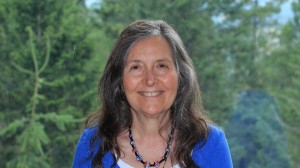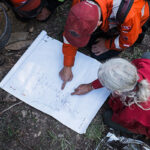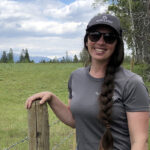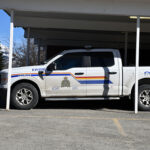Home »

Solid waste committee forming; Columbia House update
 What Happened at Invermere Council This Week?
What Happened at Invermere Council This Week?
By Carol Gordon
The regular meeting of the District of Invermere Committee-of-the-Whole was held on Wednesday, June 27 at 10 a.m. in the Municipal Office.
In attendance was: Mayor Gerry Taft and Councillors: Greg Anderson, Paul Denchuk and Al Miller.
Staff present were: Chris Prosser, Chief Administrative Officer; Kindry Luyendyk, Corporate Officer and Rory Hromadnik, Director of Development Services.
Gallery: nine people.
DELEGATIONS
Regional District of East Kootenay (RDEK)
 Kevin Patterson, Manager, Environmental Services, RDEK, Cranbrook office, in his presentation to council, provided an update on issues pertaining to solid waste management.
Kevin Patterson, Manager, Environmental Services, RDEK, Cranbrook office, in his presentation to council, provided an update on issues pertaining to solid waste management.
He said that the Review Process “has been completed and we’re now entering phase two. We now have to take some of this background information that we have and go to the public and get feedback from the public in terms of what’s their vision for the next 10 years.”
He added that a waste audit is going to be taken throughout the district during the month of July.
Patterson outlined some of the improvements to the solid waste system that are being considered include, as outlined in the Solid Waste Management Plan Review) and then discussed the Advisory Committee that is being formed.
Excerpts from Solid Waste Management Plan Review describing the work of the Committee:
“To refine goals for the RDEK’s Solid Waste System and identify feasible strategies, goals and targets for the next 10 years. We are now taking applications for the committee.”
“It is envisioned that the Advisory Committee will meet a minimum of six times between September and September 2019. The committee will consist of various stakeholders including the public, municipal representatives, industry members, community groups and First Nations.”
Patterson said, “I am encouraging people to make application to become part of our Advisory Committee. They can become technical experts; they can be members of the public. We’ll take applications and put together a committee of 15 to 17 individuals to help us through our planning process.”
“In addition to the public’s input, we’ll have online surveys, questionnaires will be going out,” he added.
For further information: Solid Waste Management Plan Review SWMP Advisory Committee Application Form; Solid Waste Management Plan Review Characterization of the System Report
Then council engaged in a lengthy discussion with Patterson about composting in the Columbia Valley. It included the idea of funding a facility.

Mayor Taft commented: “The real value in diverting the organics is on the landfill. Other than it’s the right thing to do, it’s because the organics create methane gas and fill up capacity in the landfill. There is a value to not burying those. And that’s the key part I think for the funding is that value has to be part of that equation otherwise it makes no sense for Invermere to go build a facility and operate composting if we’re not the ones benefiting on the landfill side.”
He added that the question is, “could the cost per ton be attached to the organic material? And saying this composting site is diverting this many tons of organics, therefore it’s worth this much money and we’re going to pay this much operational costs because it’s worth it.”
Patterson’s respond, “Just me speaking, I think that’s a viable pitch.” And added, “I guess where I’m coming to today, is there are other opportunities that we’re currently not addressing. I’m not saying it’s not a noble effort to try that, I’m just wondering if it might be more prudent for us to focus our energies on the low hanging fruit that would have much more significant impact on landfill lifespan.
“When you stand at a landfill and you see the rural truck and you see the residential trucks coming in, they are markedly different. The cardboard that is in the rural bins versus what’s in the residential bins, it’s huge,” he said.
“I’m not saying it (composting) is not important, because it is. It’s going to be part of our reviewing, front and centre, and where do we go forward with that. I totally agree with you (Mayor Taft), it’s got to be part of the discussion,” added Patterson.
Mayor Taft raised the issue of comparing the cost of a manned Transfer Station to a small composting system. “It’s millions of dollars for a Transfer Station,” he said.
Councillor Denchuk commented, “I wonder if we could see an increasing in composting if we created a composting facility.”
Councillor Anderson asked Patterson “So where are we going to leave this? You said your committee’s meeting for eight months and then they’re going to come out with a plan. Could you come back to Council?
“Absolutely, all the way along we’ll be looking for feedback and input,” he replied.
Groundswell Network (Facebook page)

Katrina Kellner, Director of Partnerships & Development, Groundswell Network & Community Greenhouse & Permaculture Campus, who has been in her position since March, gave a presentation to Council regarding Groundswell Network’s 2018 Fee for Service request.
Her letter to council was the basis for her presentation. Here are some excerpts:
“Groundswell – Change from the ground up. Groundswell Network Society promotes sustainability in the Columbia Valley. We foster innovative projects that encourage health for people, for the environment and for the economy.
“We will provide Community Garden plots and access to the common food production and leisure space while maintaining ongoing programming and operations at the Community Greenhouse and Permaculture Gardens. We will offer development opportunities for community members on topics related to energy, food, security, water conservation, waste management (including composting education) and local economic priorities in keeping with the objectives of the Imagine Invermere Community Sustainability Plan.
“Incorporating a fruit gleaning component to the offerings of Groundswell would occur in concert with our developing food forest and applied sustainable living programming.”
A lengthy exchange followed her presentation with council and District of Invermere (DOI) staff regarding details of the district’s annual Fee-for-Service to Groundswell. Mayor Taft commented that there has been a need for greater clarity on Groundswell’s direction.
Kellner agreed, “What needs to happen is we need to help the community understand what Groundswell does, what we deliver and why we’re an important facility for them.”
She added, “The success of Groundswell really does depend on the support of the regional district and the District of Invermere and as well as the ongoing conversations continuing with the school district and the trustees.”
Council and DOI staff provided information, clarification and guidelines for Kellner on DOI’s fee for service system and how it works. It was also suggested that she work with staff on details.
Columbia House Enhancement Society
The delegation from Columbia House Enhancement Society included Bill Bonner, Treasurer, and John Newton, President.
Their letter to council was the basis for their presentation. Here is an excerpt:
“The Columbia House Healing Garden will be built on land owned by Interior Health, adjacent to the Invermere & District Hospital and Columbia House. The Columbia House Enhancement Society has obtained the full approval from Interior health to proceed with the project, as well as the full support of the Staff and Management of Columbia House We have also received our first funding commitment from the East Kootenay Foundation for Health for $100,000.”
In their presentation, Newton said, “The initiative came from the 35 permanent residents attached to the hospital and they are people with serious disabilities and this is probably their last stop. So our idea is to make it a good one. The people are all very well looked after. What we are looking at is a little enhancement of their life.”
He added, “People inside Columbia House very rarely go outside. They go outside with visitors, but some people just stay inside. They have nowhere to go. Like I say, they are looked after but they have nowhere to go. With this (Healing Gardens project), they will be able to go outside on the patio and get sunshine every day.”
Newton said that people in the hospital and from Ivy House, Columbia House and Columbia Gardens will all be able to use the gardens.
“All the pathways will be set up for easy access for wheel chairs and walkers,” he added. “It’s going to be entirely fenced. It has to be for safety. To keep the deers out and the dears in,” added Newton.
“We’re proposing to put an eight foot fence up for protection and also security,” said Bonner. “And we’ve done things to improve the Feng Shui.”
Newton and Bonner provided further details to council, which included: usage, design, safety, security, maintenance, irrigation system, and volunteer recruiting plans for the “Healing Garden.” The shared the success they have been having with funding along with the donation component (Help us Grow the Garden) on their website.
“Our target is to have this operational by next spring,” said Bonner. Once it is operational, Bonner adds, “the target is to get everyone in Columbia House out for an hour a day. Residents will benefit from being outside, weather contingent of course.”
“We’re not necessarily here to ask for money, which is a bit of a different twist. But we think that perhaps there’s a role the DOI can play and help us out with this project.” They discussed with council some possibilities.
For further information visit the Columbia House Healing Garden website. (Facebook page).
Here are some excerpts:
“A Place of Peace”
“Just living is not enough…one must have sunshine, freedom and a little flower.” – Hans Christian Anderson
“The people of our valley are outdoor folk. Most of us take for granted the opportunity to get out and enjoy the fresh mountain air, wide skies and the plants and animals that are part of our environment. But for the most vulnerable members of our community, the outdoors are simply not accessible. Residents of Columbia House, our long-term care facility, cannot easily leave the confines of the building to experience sunshine, fresh air, trees, flowers or birds.
“The Columbia House Enhancement Society has a plan to change this scenario. On land adjacent to the Columbia House, we have committed to create the Columbia Valley Healing Garden. The garden will be built to accommodate everyone, regardless of their mobility. It will be safe and secure to allow individuals with dementia or those with balance concerns to be outside.”
Lawrie Mack, Chair, Jim Neilsen, Treasurer, Ros Stainthorpe, Committee Chair and Elaine Wallace, Secretary, were the delegation from the Facility Committee of the Columbia Valley Food Bank.
Mack began, “We’re here today to talk about a partnership with you in building a new Food Bank facility, continuous to the current one.”
He points council to the folder they handed out. On the front it states:
“The purpose of our presentation is to discuss the possibility of constructing a 1,200-square-foot building to conduct Food Bank operations on the District of Invermere Land directly behind the existing building at 201-7th Avenue.”
Mack guided council through the tabbed sections of the folder: Introduction, Preliminary Drawings, Financial Statements, Operating Statistics and Procedures, Questions, Discussions.
Due to a large donation from Albert Cooper (estate), Mack said, “We do have the funds in place, once we have the plans and the go ahead.”
As Mack concluded his presentation, he said, “What we’re hoping to gain is your support for going ahead with this because it will have to be a joint project, it will have to be a partnership because we’ll have the building but it’s on your land.”
Discussion between the Food Bank Facility Committee and council and Chris Prosser, Chief Administrative Officer included topics: location of the new building, the estimated cost to build the building, size of building, accessibility, possible garden, owning/leasing arrangement possibilities, maintenance, responsibility for operational costs, timeline expectations, parking and solar panels.
Councillor Anderson said, “The main thing is, you’re going to go ahead.”
Shawn Ridsdale, Invermere Truck and Trailer LTD.
Ridsdale raised with council the possibility of purchasing Crown land behind his property.
“I’m basically at the point where I’ve outgrown the property we do have and I haven’t even hit my stride yet. The purpose of purchasing that property is mostly just for parking and storage of larger truck and trailers,” said Ridsdale.
Discussion between Ridsdale, Council, CAO Prosser and Rory Hromadnik, Director of Development Services, included topics: size of partial, other options, questioning whether business neighbours had interest in expansion, paved or gravel road, logistics of the process of purchasing crown land from province and industrial expansion.
Council advised Ridsdale to speak with his neighbours to see if they have an interest in joining in with him.
Ridsdale said, “I have no problem approaching and getting that information for you guys. And also I have a few of my customers who are willing to give me a letter of intent to bring to you as well. That there is already use for that land if I should be granted it.”
CAO Prosser informed council and Ridsdale of what the next steps in the process are before bringing it before a formal meeting of council.
 Invermere Fire Chief – Jason Roe
Invermere Fire Chief – Jason Roe
Jason Roe, Invermere’s new Fire Chief, was promoted from his Deputy Chief position, when Fire Chief Roger Ekman retired recently. Fire Chief Roe was invited by council to discuss the current status of the Invermere Fire Department.
During the discussion between council, CAO Prosser and Fire Chief Roe, the topics which were covered included: CastleRock residents having expressed concern to council about making sure that emergency vehicles have access to their community, hiring a new Deputy Fire Chief, recruiting volunteers, the pre-planning process, budgeting issues, emergency and evacuation planning and regional training.
The District of Invermere Committee of the Whole meets regularly throughout the year on one Tuesday of each month at 10 a.m. in the Council Chambers of the Municipal Office (914 – 8th Avenue, Invermere). Unless otherwise indicated, there are no more committee meetings scheduled until after the fall municipal election.
e-KNOW







